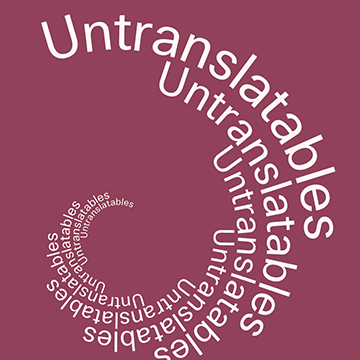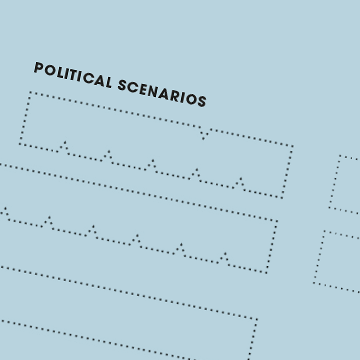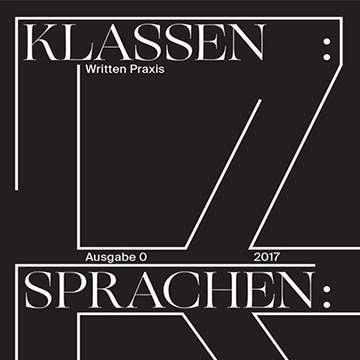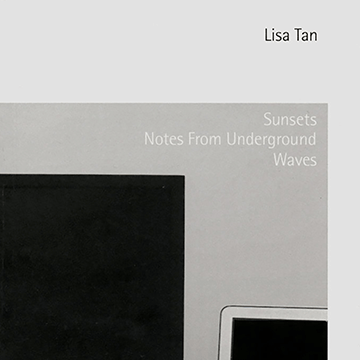Wer kennt die Frente Polisario, die DARS – Demokratische Arabische Republik Sahara - und die Sahrauis, zu denen auch viele Fischer gehörten, die aus ihrer Heimat vertrieben wurden und heute als Flüchtlinge im „Sandmeer“ der Sahara leben? Fabrizia Ramondino hat ein Logbuch verfasst während der Reise in die Zeltstädte der algerischen Wüste, bei der sie das Team von Mario Martone begleitete, den UNICEF und RAI Uno beauftragt hatten, einen Dokumentarfilm über die sahrauischen Kinder zu drehen.
Tag: translation
Unübersetzbare Begriffe Kultureller Praktiken
Unübersetzbare Begriffe schlägt ein neues Vokabular von Begriffen vor, die in ihrer Sprache bestehen bleiben und nicht übersetzt werden. Es handelt sich um Wörter, die kulturelle Praktiken, Haltungen und Wertesysteme vermitteln und aus ihrem jeweiligen Sprach- und Wortkanon erklärt werden.
Untranslatable
Untranslatable proposes a new vocabulary of terms that remain untranslated in their original language. These are words that convey cultural practices, attitudes and value systems and are explained from their respective language and word canon. Terms are presented that broaden perspectives, facilitate new perspectives, and thus enrich collective thinking as a global community.
My Name is Language
The publication My Name Is Language (2020) explores the key tenets of artist Nicoline van Harskamp’s research and practice, such as the contemporary use and modification of languages, a treatment of names as spoken language rather than spelled identity markers, and the practice of self-naming. In the fictive worlds represented in this book, society is not centralized, not oversized, and self-naming is brought forward as a form of self-empowerment and resistance.
Klassensprachen
Instead of passing off art as a model for a better politics, we wish to test it for the signatures, the markers and forms of these deeply antagonistic relations of which art itself is a material part: we are concerned with art as a class language, as well as with class languages in art; with art’s room for maneuver as well as with its limits and restrictions, curatorially, in writing and debate.
Sunsets, Notes From Underground, Waves
The book serves as a guidebook to Lisa Tan’s eponymous video suite. Containing illustrated transcriptions of each video and texts by Mara Lee, Lauren O’Neill-Butler, Natasha Sadr Haghighian, and the artist, it both catalogues and responds, sticks to the facts and allows for hearsay.
The concept of the liminal permeates Tan’s videos: drifting between day and night, above and below ground, land and sea. An analogous transit is offered by this book, suspending the reader between the empirical and subjective, with the hope of fulfilling the promise held out by the liminal: transformation.





